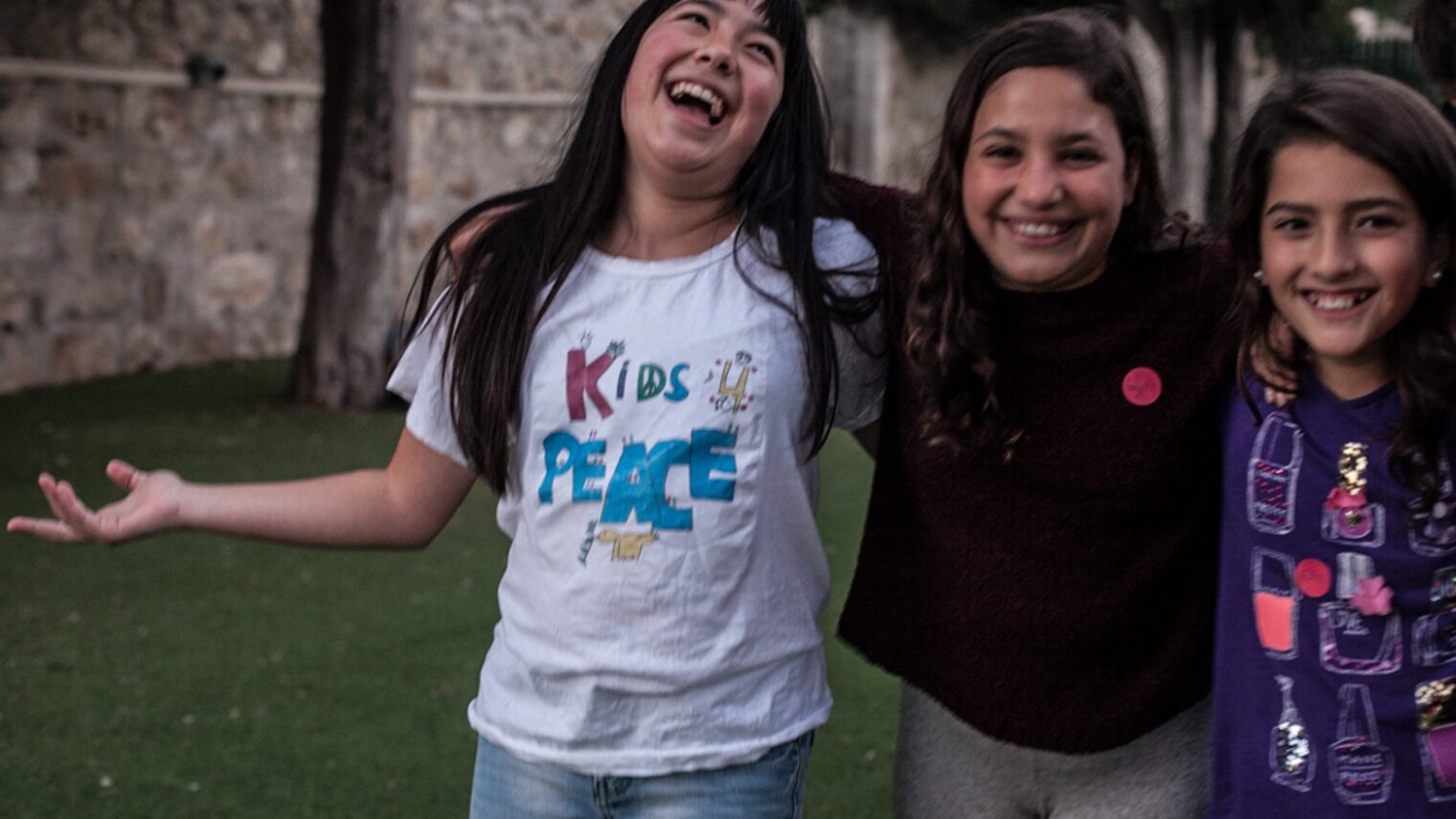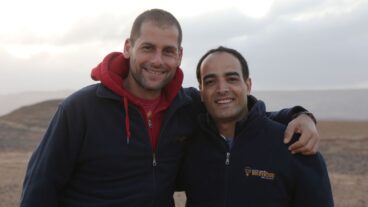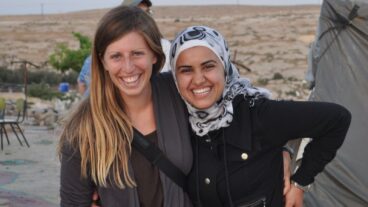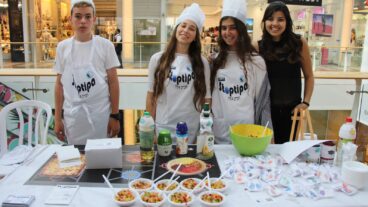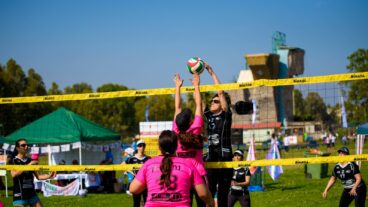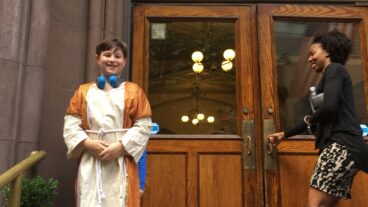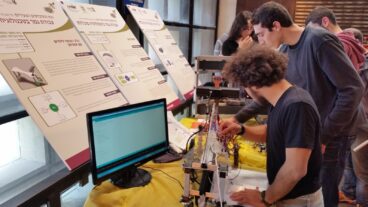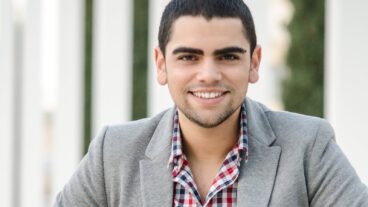Essential Question: Is there one way to define peace?
It’s the season of peace and good will and though peace may be in short supply in the region, a group of Jewish, Muslim and Christian kids and their parents in the Jerusalem area think that getting to know one another through the local branch of the nonprofit Kids4Peace International can make a difference.
The Washington-based K4P International* provides a six-year program for ages 12 to 18 that includes dialogue groups, community events, volunteering, local and international summer camps, bimonthly meetings and leadership training. It has 10 chapters worldwide.
K4P Jerusalem, led by Jewish and Muslim co-directors, began in 2002 with four Jewish, four Christian and four Muslim families. The program now boasts 400 active participants and 80 new families joined in 2014.
“It’s pretty courageous to come and meet each other in times like this, but people on all sides want peace.”
ISRAEL21c spoke with co-directors Rebecca Sullum and Mohammad Joulany as a three-month wave of stabbings and shootings by Arab citizens of Israeli and Palestinian Authority-administered territories showed no signs of abating. Many of the perpetrators have been teenage boys and girls – the peer group of K4P participants.
“We see youth are heavily involved in the recent violence and that means we have to work with more communities and larger numbers of youth,” Joulany asserts. “The teens involved in K4P are doing completely different things than the violent things we see happening on the streets.”
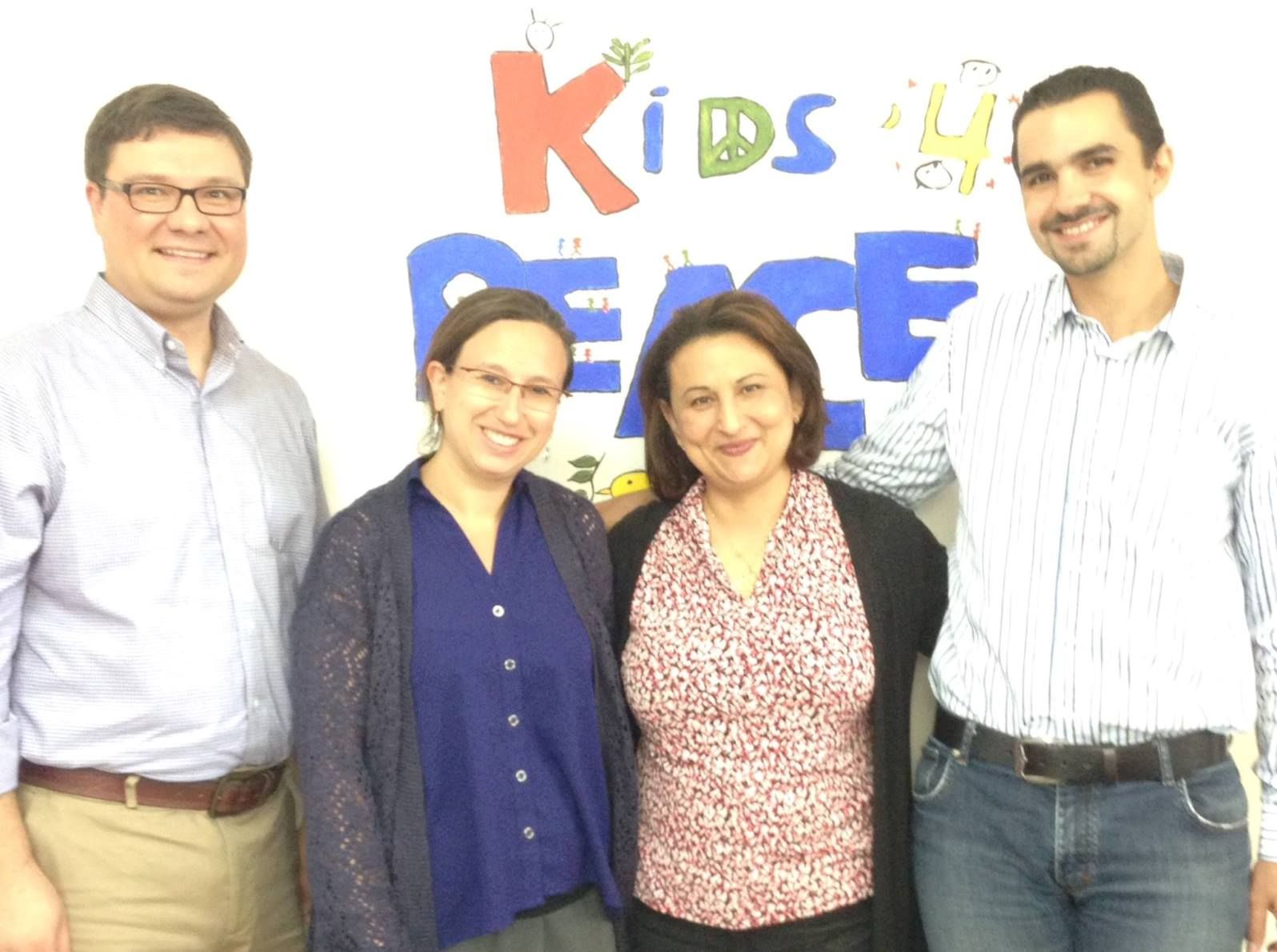
K4P created an online social-media campaign, #ViolenceStopsWithMe, during the 2014 Gaza war, and it has taken on new relevance in the current situation. But it is the face-to-face meetings that count most.
“People in our organization are more motivated than ever to meet and to show that peace is possible and that we are able to overcome fears,” says Sullum, who first encountered “the other” at a Vermont summer camp when she was 18 and went on to earn a master’s degree in conflict transformation.
“We held our first program of the year [in October] just as things were getting difficult in Jerusalem, and we had 150 people including 60 parents who are incredibly involved and committed. It’s pretty courageous to come and meet each other in times like this, but people on all sides want peace,” Sullum says.
“We won’t stop any of our programs. We have to keep on meeting and not let violence take over. We really believe that getting to know each other is the way to help overcome fear.”
George’s story
K4P Jerusalem is in the midst of a research project to ascertain how its program has impacted current participants and alumni, the oldest of whom are 24 years old.
A Christian 11th-grader named George explained in response to the survey that he first came to Kids4Peace only to prove to himself that all the terrible things he had heard about Jews were true. “I didn’t hate them, but I knew they were my enemy.”
During his first K4P summer camp, however, he developed a close bond with a Jewish boy, Emanuel. “He taught me to read Hebrew and even to speak a little. I wanted to stay in Kids4Peace so we could stay friends,” said George. “If we met on the street instead of Kids4Peace, maybe we would have gotten into fights.”
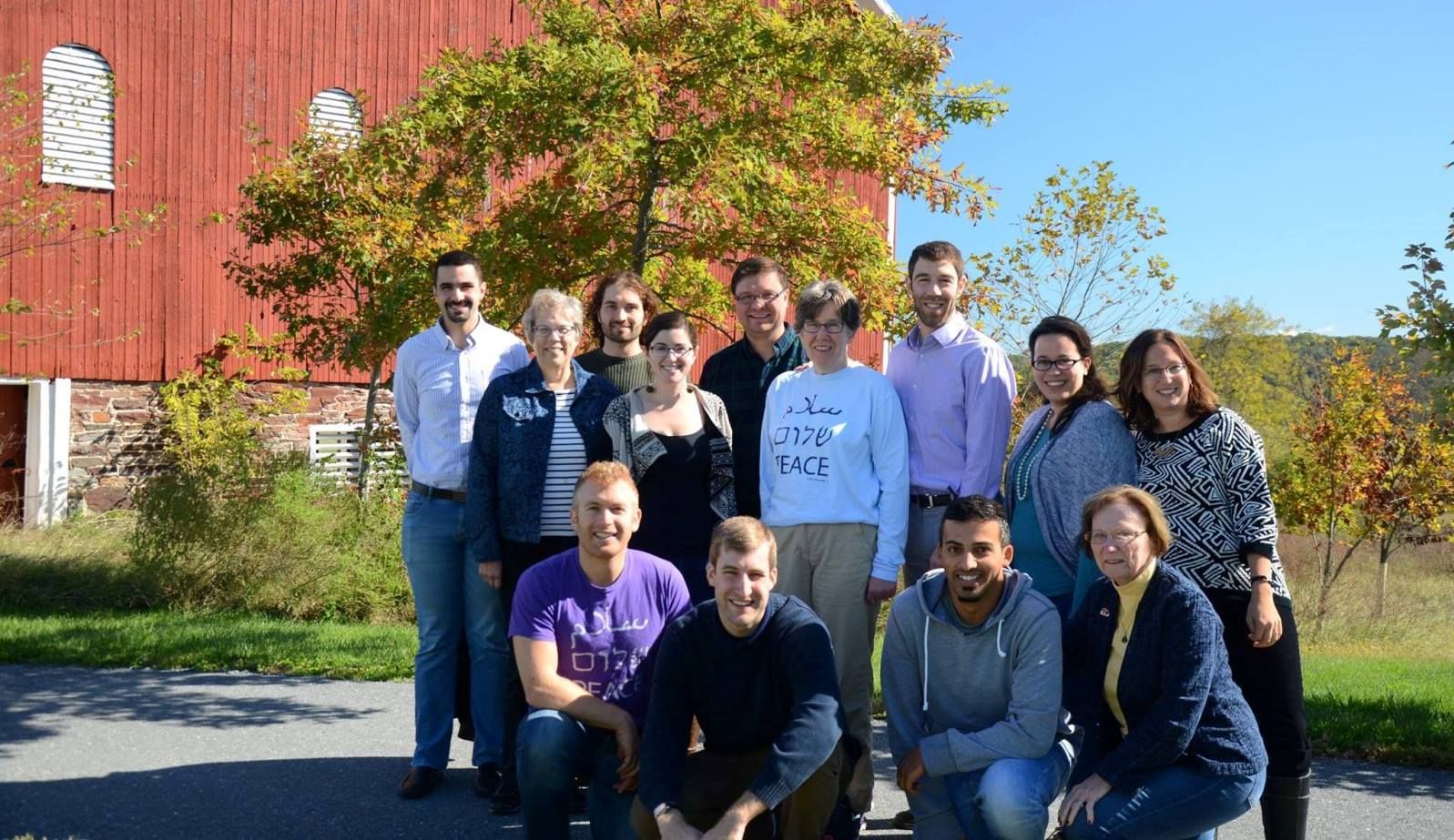
During the war in summer 2014, people in George’s neighborhood clapped and cheered when they heard a siren indicating an incoming missile from Gaza.
“I didn’t understand how anyone could be happy to be in a war, especially with what was happening in Gaza. Because now I have close Jewish friends and I knew that Hamas was aiming at them, every time I heard a siren, I called to make sure the rocket didn’t fall near them. When we went to camp during the war, everyone was really sad. Even though the conversations were really difficult, somehow our friendships stayed strong,” said George, who decided to become a K4P counselor.
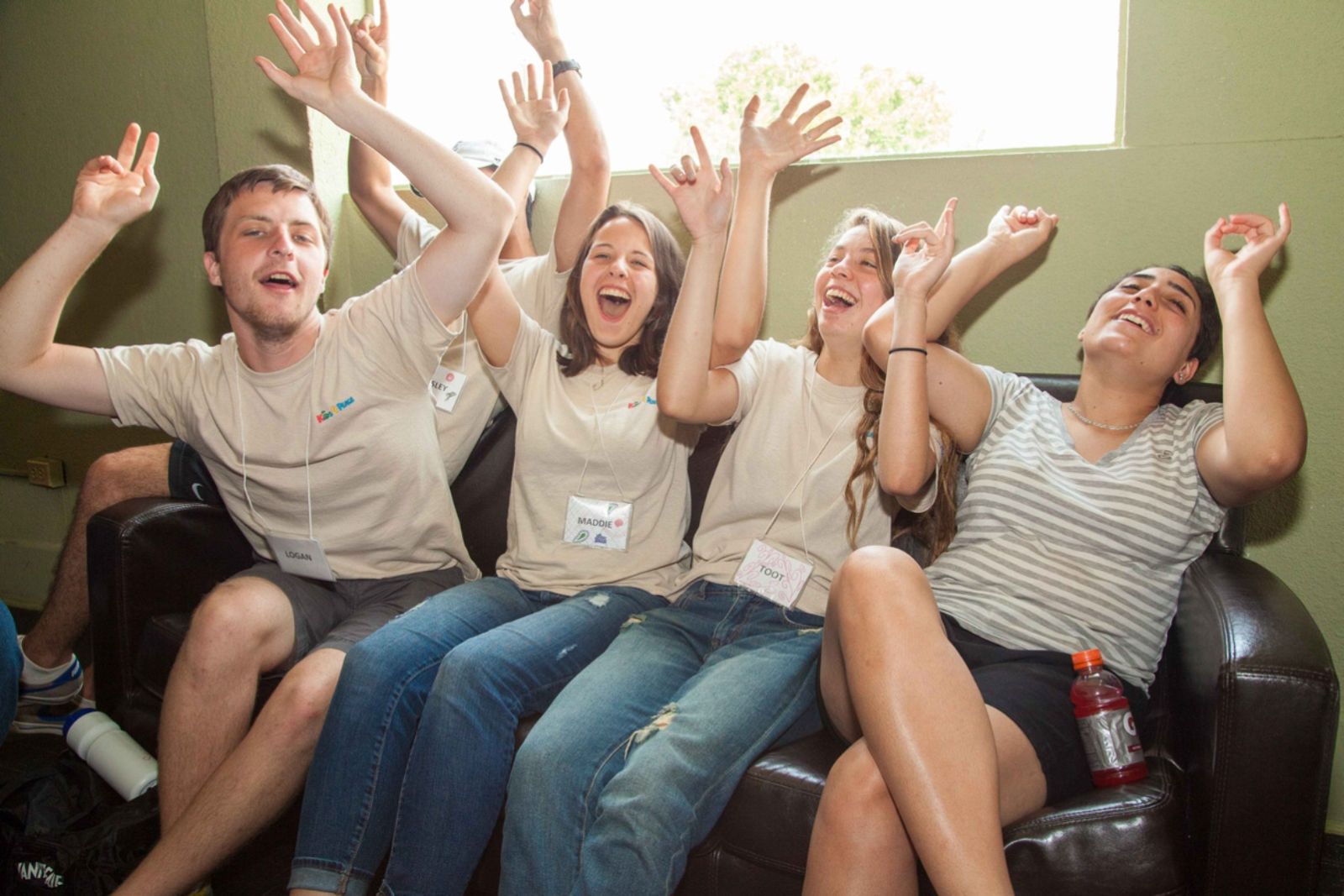
Mohammad’s story
Joulany grew up in the Arab East Jerusalem neighborhood of Shuafat, a place of frequent clashes between local youth and Israeli soldiers. His parents encouraged him to redirect his anger at the situation in a positive way, by volunteering with a Palestinian youth organization.
“I traveled to New York to attend a conference and was told that I had to share a room with an Israeli. At first I refused but the organizer said I had to,” Joulany recalls. He later found out that the Israeli roommate had also refused at first because he was afraid Joulany would attack him.
As he got older and started seeking more ways to engage with “the other,” a friend told him about K4P and he began volunteering before becoming co-director in his late 20s.
“Kids4Peace changed my perspective and attitude, breaking stereotypes I had about the other,” says Joulany. “It was the first time I was really meeting Jews, my first time entering a synagogue. I used to think a kippah was symbol of settlers till I saw one of my colleagues’ husband wearing one. I learned more about the Jewish religion and Israelis from my new encounters.”
He and Sullum divide tasks and he is mainly responsible for partnerships, management and administration. “I also engage with parents and find it very powerful to see how every day we are changing lives,” says Joulany.
He finds that many parents initially see K4P as a valuable opportunity for their children to learn leadership, listening and interpersonal skills, public speaking and English. The latter is necessary for those parts of the program that require interacting with American kids.
“We see that gradually the parents are interested in meeting one another and in what we can do to help them,” says Joulany, who tries to keep political views out of the equation “because we want everyone to feel included. People need to coexist and to see the other as human beings.”
The organization has launched a new campaign to match a $50,000 grant from an angel donor.
For more information on K4P Jerusalem, click here.
*K4P International= K4P International has groups across North America and the world. You can learn even more about KP4 by following their blog here. (link to K4P blog)
What are other ideas or initiatives that you have heard about that promote coexistence? Follow us on our Facebook page to join the conversation.




